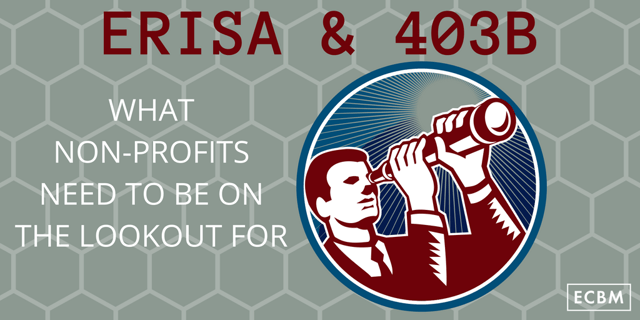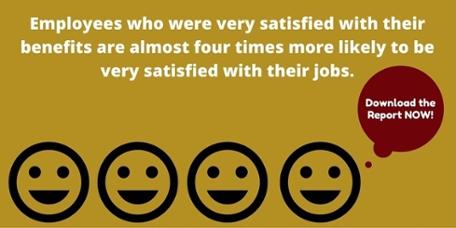
Lawsuits over retirement plans and the failure of organizations to meet their fiduciary duties under the Employee Retirement Income Security Act (ERISA) continue to proliferate and make the news. Previous defendants in these suits include high profile companies like Lockheed Martin and Boeing. Now these lawsuits have expanded to include non-profit organizations such as educational institutions and hospitals.
Why Would Non-Profits Have Different Risks Regarding ERISA?
Non-profit organizations and the retirement plans they offer differ slightly from those offered by for-profit companies. While for-profit companies offer their employees 401(k) plans, non-profit companies offer their employees 403(b) plans.
The differences between 401(k) and 403(b) plans are small but significant.
- 403(b) plans prohibit profit employer profit sharing as part of their plan for obvious reasons.
- 403(b) plans also have an exemption from non-discrimination testing provisions of ERISA, aimed at preventing disproportionate amounts of plan benefits going to high level employees.
For a number of reasons including these legal distinctions, the varying provisions tend to result in 403(b) plans having lower expenses but no employer matching.
NonProfits Experiencing High Levels Of Waste
While prohibitions on things like profit-sharing may limit some potential for conflict of interest type issues, a number of studies have shown that certain non-profit retirement plans waste large sums of money on unnecessary high fee investments and decisions that maximize plan manager revenues at the expense of plan beneficiaries. Aon Hewitt estimated potential waste in the field of 403(b) management at almost $10 billion a year. READ MORE: ERISA And The Continued Controversy Of 401ks and IRAs
Poor Management Of Fees
Jerry Schlichter, a St. Louis attorney who first sued companies for violations of fiduciary duties due to their failure to manage fees properly, has filed suit against eleven different universities, including a number of high profile Ivy league schools such as Columbia University, Yale University, and the University of Pennsylvania. Schlichter and his firm have won settlements totaling over $300 million in recent years from similar lawsuits against 401(k) plans.
Not Leveraging Bargaining Power
The lawsuits allege that 403(b) plans have failed to investigate fully options for leveraging their bargaining power to lower expense ratios and expense sharing. As an example, plaintiffs’ lawyers have pointed out the four hundred or so plan options offered by several of these institutions. The unique rules that apply to 403(b) plans may limit the success of these new lawsuits though. Because 403(b) plans can only invest in annuities and registered mutual funds, these plans cannot utilize collective investment trusts. These collective investment trusts have helped significantly to lower the expense ratios of 401(k) plans. As 403(b) plans cannot use these vehicles, plaintiffs may have a harder time arguing that 403(b) plans failed to find reasonable ways of lowering fees while still obtaining appropriate returns.
What Non-Profits Should Know About ERISA Now
The universities involved have mostly issued statements denying the allegations in the lawsuits and pointing to regular auditing and oversight of their plans to show their active compliance with fiduciary duties. Still, ERISA litigation often takes many years to reach trial and most cases settle before trial to avoid litigation costs. It’s a warning for all organizations offering retirement plans to know their risks and exposures to this type of litigation and take what steps they can to protect themselves.
READ MORE: Supreme Court Rules on 401ks, What you need to do about it

